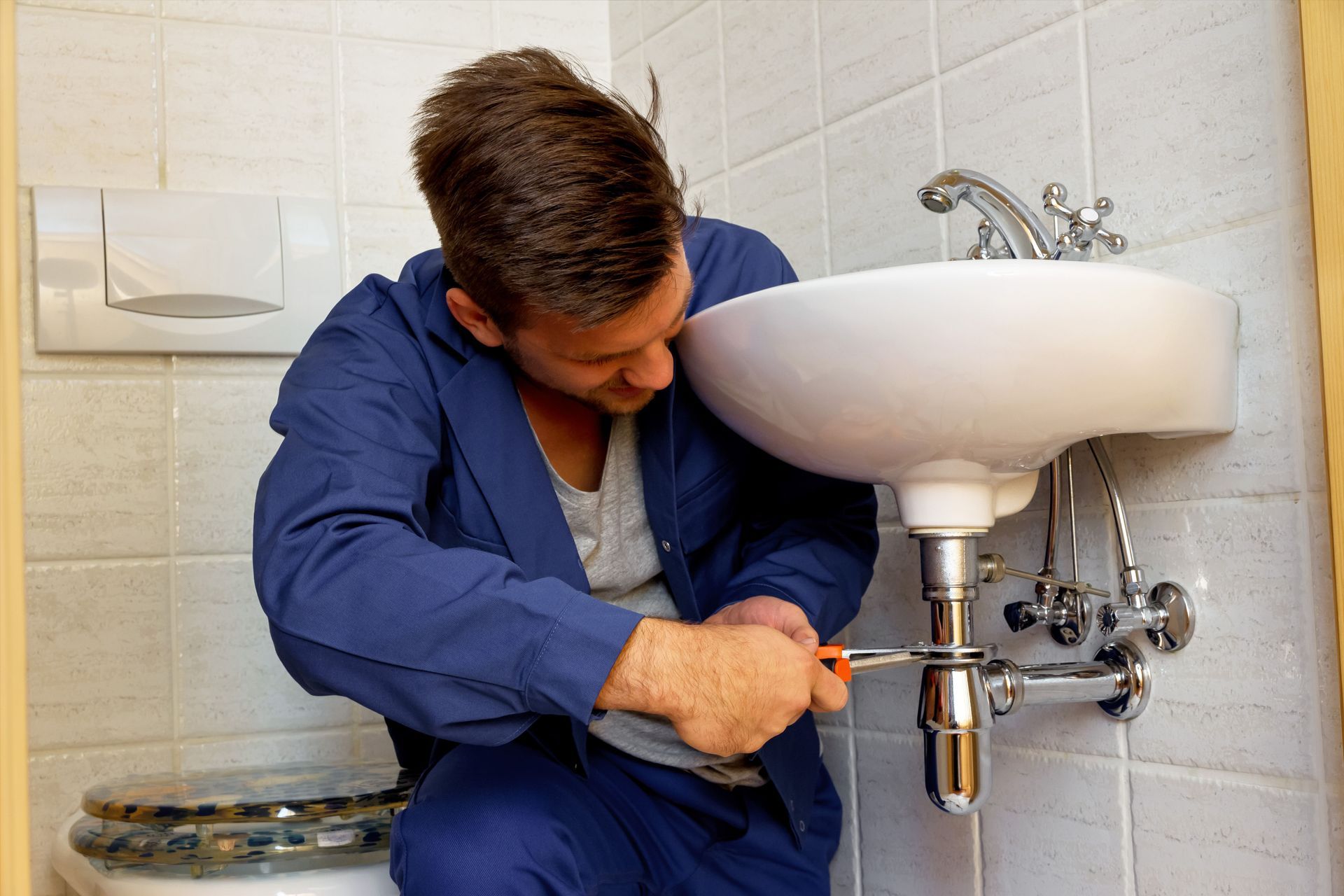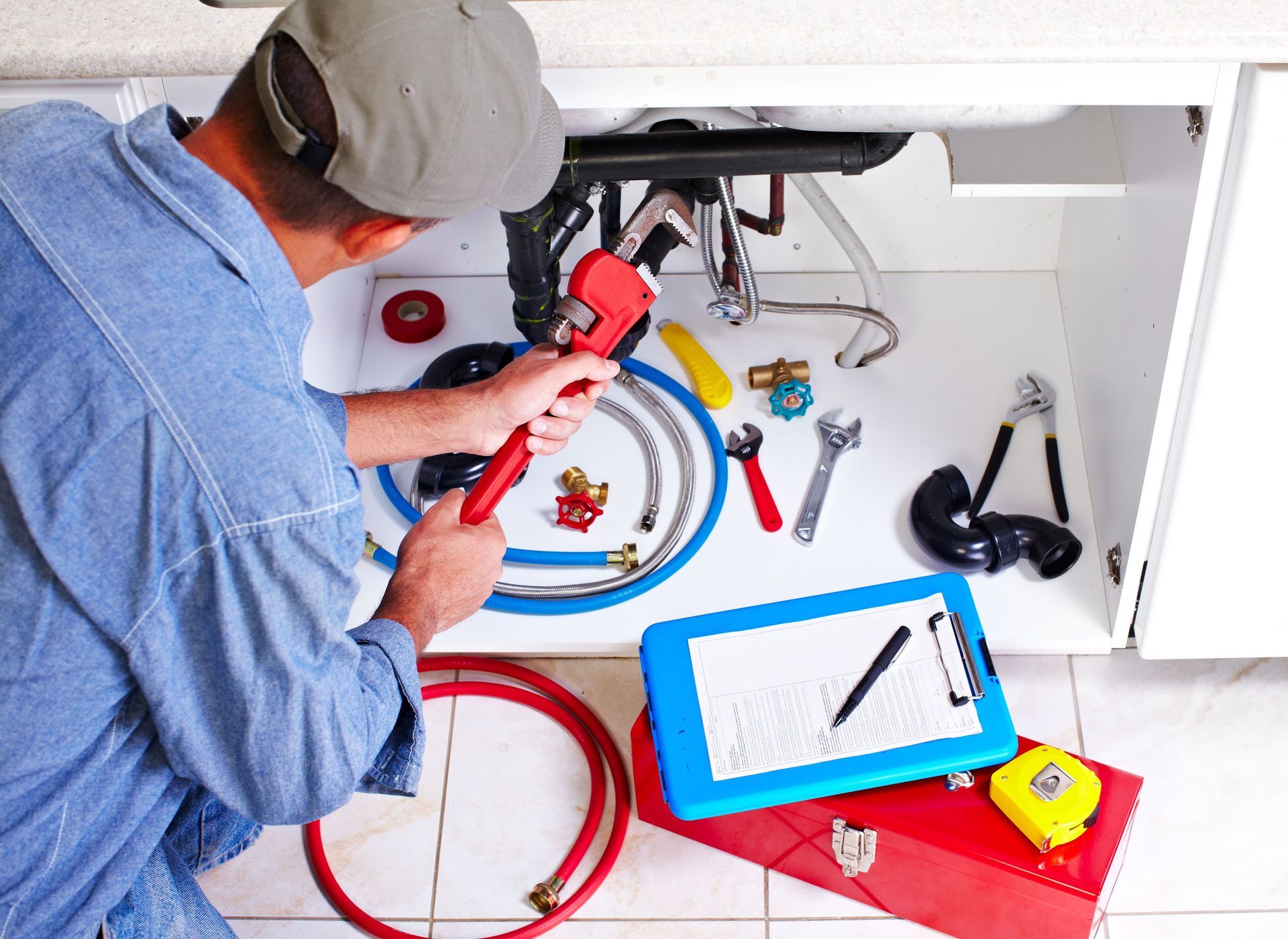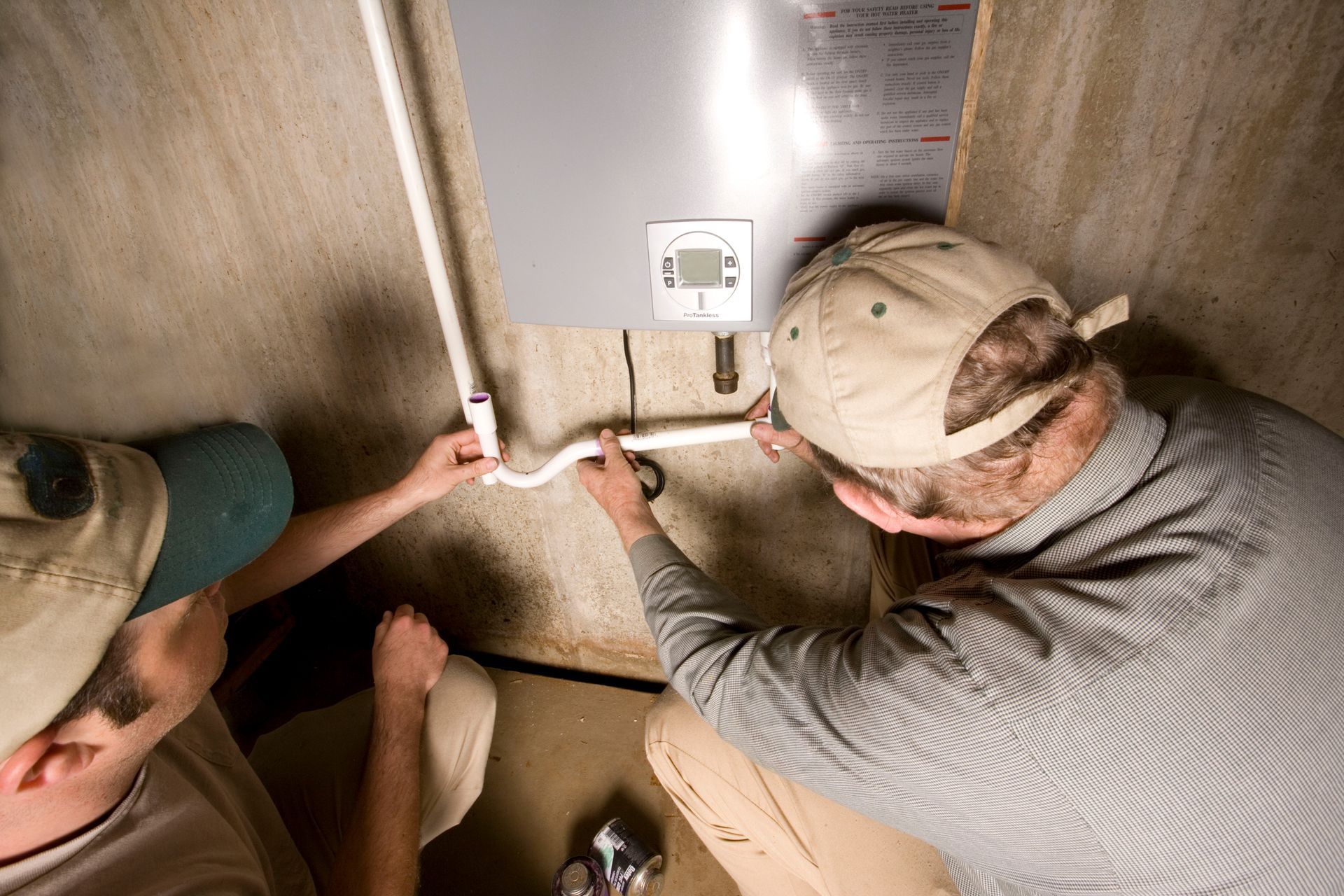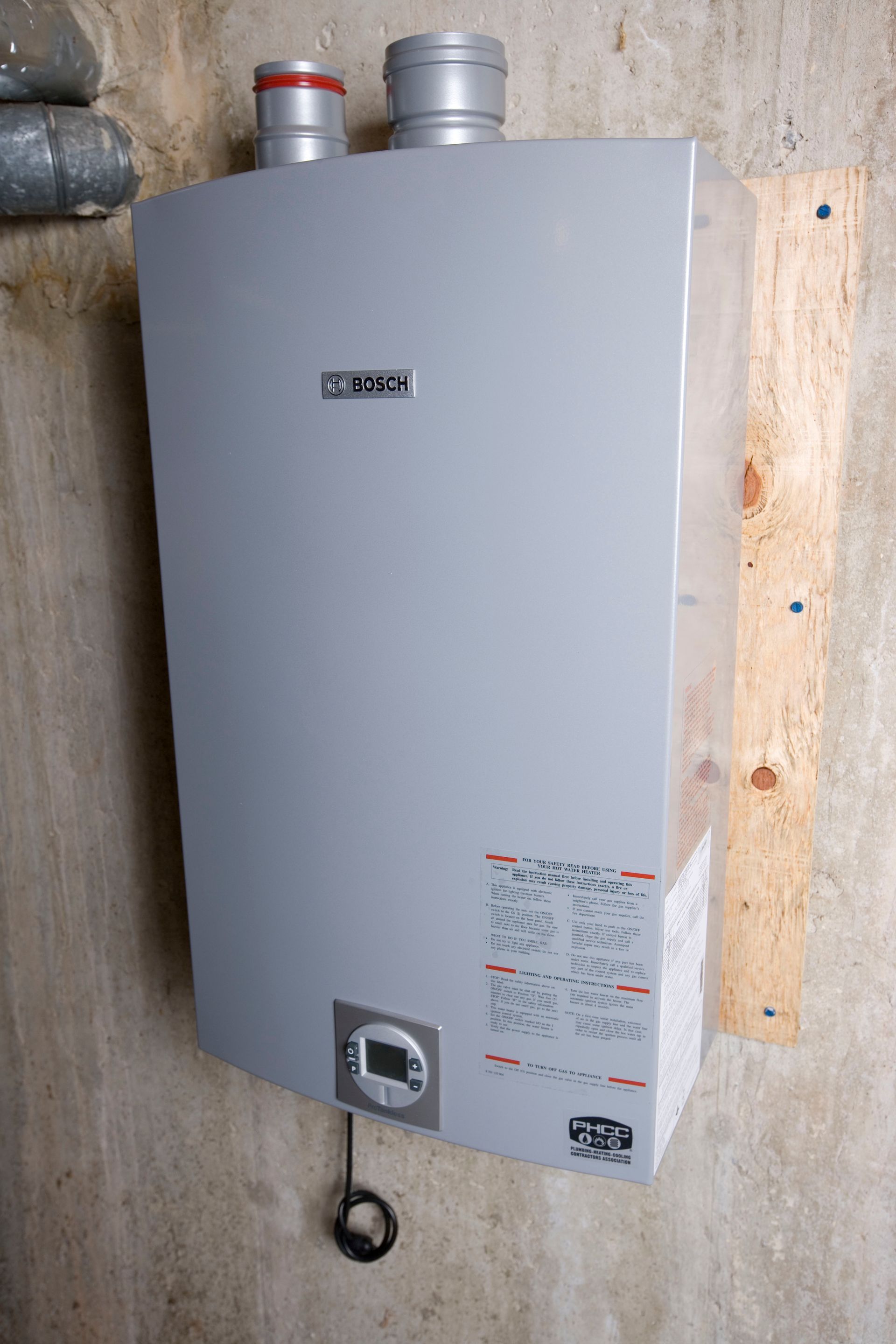7 Questions to Ask When Hiring a Plumbing Company
Hiring the right plumbing company can be a game-changer when it comes to ensuring your home's plumbing system runs smoothly. Whether you're dealing with a minor leak, planning to renovate your bathroom, or facing an unexpected plumbing emergency, having a reliable plumber by your side makes all the difference. However, not all plumbing companies are created equal, and choosing the wrong one can lead to poor workmanship, wasted money, and ongoing frustration.
To help you make the best choice, we’ve curated a list of essential questions you should ask before hiring a plumbing company. These questions will help you assess the expertise, reliability, and professionalism of the plumber you’re considering, ensuring that your home is in capable hands.
1. Are You Licensed and Insured?
One of the first things you should ask a plumbing company is whether they are licensed and insured. A valid license demonstrates that the company meets state and local regulatory standards and operates legally. It also shows that the plumbers have undergone the necessary training and certification processes to perform plumbing work safely and correctly.
Insurance, on the other hand, protects both the company and its clients from potential liabilities. Accidents, water damage, or property issues can occur during any plumbing job—no matter how small. If your plumber isn’t insured, you could be held responsible for damages or injuries that happen on your property.
Ask to see proof of both licensing and insurance before work begins. A reputable company will have no problem providing documentation. Knowing that your plumber is fully licensed and insured gives you peace of mind that your home and finances are protected.
2. What Is Your Experience and Training?
Experience and proper training are critical factors in the plumbing industry. A company with years of hands-on experience is more likely to diagnose problems quickly and offer long-lasting solutions.
Ask how long the plumbing company has been in business and whether its technicians receive ongoing training. Technology and plumbing methods continue to evolve—today’s plumbers must understand modern piping materials, smart home water systems, and energy-efficient water heaters. According to the U.S. Bureau of Labor Statistics, plumbing apprentices typically receive around 2,000 hours of hands-on training. This type of experience ensures that the plumbers are well-prepared to handle anything from basic leaks to complex system installations.
Additionally, inquire if the company specializes in certain types of plumbing, such as residential, commercial, or industrial systems. A plumber who primarily handles residential projects may not have the right equipment or knowledge to manage large-scale commercial jobs.
Experience isn’t just about years in business—it’s also about the variety of projects a plumber has successfully completed. Don’t hesitate to ask for examples of similar work they’ve done in the past.
3. Can You Provide References or Reviews?
A reputable plumbing company will readily provide references or direct you to reviews from past customers. These references give you a snapshot of the company’s reliability, punctuality, and workmanship. When speaking to past clients, ask about their overall satisfaction, how well the plumber communicated, and whether the project was completed on time and within budget.
Online reviews can also be incredibly helpful. Look for consistent patterns in the feedback—both positive and negative. For example, if multiple reviewers mention poor communication or billing issues, those might be red flags.
Pay close attention to how the company responds to negative reviews. A professional, respectful response that offers to make things right demonstrates accountability and good customer service. On the other hand, dismissive or defensive replies can indicate poor business ethics.
Transparency builds trust. A company that takes pride in its work won’t hesitate to share testimonials and success stories.
4. Do You Offer a Warranty on Your Services?
A reliable plumbing company stands by its work and offers warranties on both labor and parts. Understanding the terms of a company’s warranty can save you from headaches and unexpected expenses later.
Ask what their warranty covers and how long it lasts. For example, some companies may offer a one-year warranty on labor and materials, while others may extend coverage for several years. A warranty not only demonstrates the company’s confidence in their workmanship but also gives you peace of mind knowing you’re protected if issues arise after the job is complete.
Also, clarify what voids the warranty. Some warranties may be invalidated if other contractors alter the plumbing work or if unapproved materials are used. By getting all details in writing, you can avoid confusion down the road.
5. What Is the Estimated Timeline and Cost?
Discussing the estimated timeline and cost upfront helps prevent misunderstandings later. A professional plumbing company should provide a written estimate that clearly outlines the scope of work, material costs, and labor charges.
Be cautious of quotes that seem unusually low. While it’s tempting to choose the cheapest option, extremely low prices can indicate hidden fees or subpar materials. It’s better to pay slightly more for a company that values quality, transparency, and long-term results.
An experienced plumber will also give you a realistic timeline for completion. While some minor repairs can be completed within hours, larger projects—such as repiping a home or installing new bathroom fixtures—may take several days. Establishing a timeline ensures that your expectations align with the plumber’s availability and capacity.
Ask whether the company charges a flat rate or by the hour, and find out if emergency services have additional fees. Transparency on pricing avoids surprises once the work begins.
6. Do You Provide Emergency Plumbing Services?
Plumbing emergencies rarely happen at convenient times. A burst pipe or overflowing toilet can cause significant damage in just a few hours. That’s why it’s important to know if the plumbing company you hire offers 24/7 emergency services.
A dependable plumbing company will have a system in place for handling urgent calls, even after regular business hours. Ask how quickly they can respond to emergencies and what their process is for scheduling after-hours service. Having a trusted plumber you can call in a crisis can save you from costly water damage and stress.
7. What Kind of Equipment and Technology Do You Use?
Modern plumbing relies on advanced tools and technology for efficient diagnosis and repair. Ask whether the company uses modern diagnostic tools such as video pipe inspection cameras, leak detection equipment, or hydro-jetting systems. These technologies allow plumbers to identify problems quickly without unnecessary damage to your property.
Companies that invest in the latest equipment demonstrate a commitment to quality and efficiency. Advanced tools not only make the job faster but also ensure more precise and long-lasting repairs.
Selecting the right plumbing company requires due diligence, attention to detail, and a willingness to ask the right questions. By taking the time to verify licensing, insurance, experience, references, warranties, and pricing, you equip yourself with the information needed to make an informed decision.
A trusted plumbing company not only delivers high-quality service but also builds a long-term relationship with its customers through honesty and reliability. Whether you’re planning a renovation or dealing with an urgent leak, the right plumber will ensure your system operates smoothly and efficiently for years to come.
In the end, asking these critical questions doesn’t just protect your home—it protects your investment and your peace of mind. If you're looking for a reliable plumbing company, don't hesitate to reach out to Excalibur Plumbing today.





Share On: